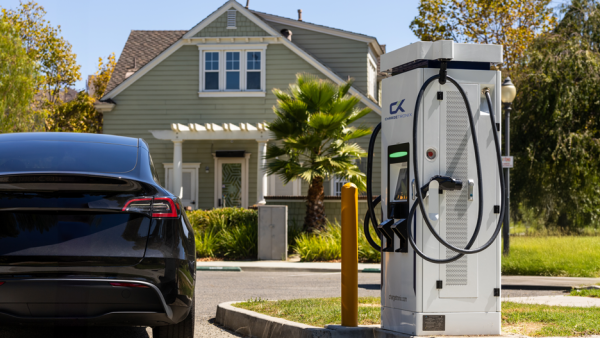As electric vehicles (EVs) continue to rise in popularity, businesses with parking facilities must consider installing EV charging stations to meet growing demand. EV drivers prefer to patronize locations where they can charge their vehicles, making charging stations a key asset for attracting and retaining this valuable customer base. If you’re looking to future-proof your business, installing charging stations is essential.
However, you’ll need to decide how to manage your EV charging stations. There are several models available, each with its own set of advantages and drawbacks. The best option depends on your business goals and the needs of your customers.
Let’s explore five primary EV charging models that retail locations such as hotels and stores can implement.
1) Charging by Kilowatt-Hour (kWh)
One straightforward approach is to bill customers based on the kilowatt-hours (kWh) they use. This model allows you to recover the costs associated with the energy consumed by your charging stations.
Example:
- Set price: $0.25/kWh
- 32 kWh x $0.25/kWh = $8.00
2) Charging by Time
Another effective method is to charge by the time a vehicle is connected to the charger. This model encourages drivers to move their vehicles once they’ve finished charging, freeing up the station for others.
Example:
- Set price: $3.00/hour
- 32 kWh charge (at 8 kW output) = ~4 hours
- 4 hours x $3.00/hour = $12.00
3) Combination Charging (kWh + Time)
For those who want to combine the benefits of both kWh and time-based billing, a combination model might be ideal. This approach charges drivers for both the energy consumed and the time spent at the station.
Example:
- Set price: $0.20/kWh + $1.50/hour
- (32 kWh x $0.20/kWh) + (4 hours x $1.50/hour) = $12.40
4) Flat Rate Charging
A flat rate model is the simplest way to collect revenue from your charging stations. By charging a single, fixed fee for using the charger, you eliminate the need for complex billing calculations.
Example:
- Set price: $10.00 per charge
5) Free Charging
For businesses looking to offer an extra convenience to their customers, providing free charging is a straightforward, customer-friendly option. Free charging is an excellent way to attract EV drivers to your location.
Example:
- Set price: FREE!
Pros and Cons of Each Charging Model
| Charging Model | Pros | Cons |
| Charging by kWh |
|
|
| Charging by Time |
|
|
| Combination Charging |
|
|
| Flat Rate Charging |
|
|
| Free Charging |
|
|
Conclusion
Choosing the right EV charging model for your business depends on your specific goals and the needs of your customers. Whether you opt for kWh-based billing, time-based billing, a combination of both, a flat rate, or free charging, each model has its benefits and challenges.
At ChargeTronix, we’re here to help you navigate these options and find the best solution for your hotel, store, or any business with parking facilities. With the right approach, you can attract more customers, enhance your service offerings, and position your business as a leader in the rapidly growing EV market.
Reading Time: 2mins 14s
